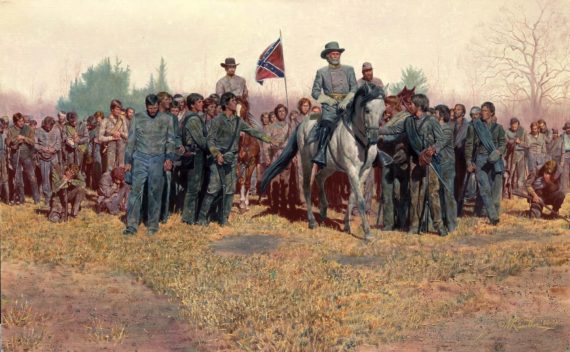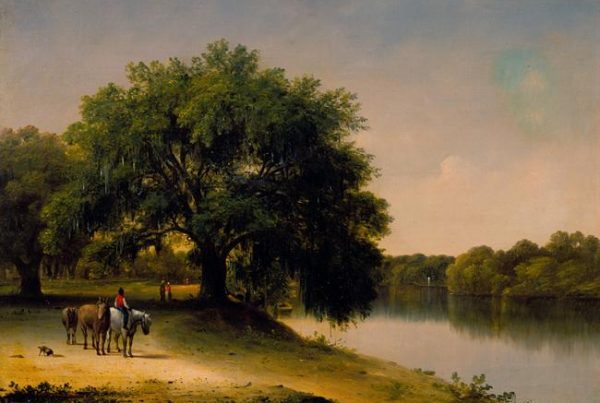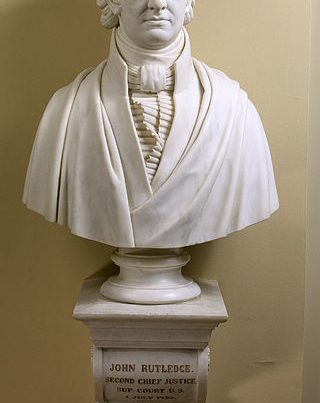Promoted over four senior captains just a few days shy of his nineteenth birthday, James R. Hagood was the youngest full colonel in the Army of Northern Virginia. A native of Barnwell, South Carolina, he began his Confederate military service as a private. His promotions were made for acts of gallantry which earned him the commendations of Generals Bratton, Field, Longstreet, Beauregard and Lee.
The young colonel was given command of the 1st South Carolina Infantry, a regiment in Longstreet’s Corps first commanded by his older brother General Johnson Hagood. After the war, Colonel James R. Hagood wrote a history of his regiment. It remains unpublished, but it contains some of the most vivid and moving descriptions of the last days of the war ever written.
During a siege that went on from June 1864 to late March 1865, the 1st South Carolina Infantry Regiment took part in the defense of Petersburg, Virginia, a city crucial to the railroad supply line for General Robert E. Lee’s army and Richmond. When Lee’s supplies were finally cut off by General Grant’s army, he abandoned the area, retreating to Appomattox Court House.
Colonel Hagood and his men evacuated the Petersburg area and went to Amelia Court House, expecting to find some supplies of rations which were supposed to have been left there for the retreating army, but by some mistake, these supplies had been forwarded to Richmond. “Now the Army found itself in a most distressing condition,” Hagood wrote. “The troops, having but one day’s ration in their haversacks when Petersburg was evacuated, had already gone nearly a day without anything to eat and the close proximity of the pursuing enemy precluded the hope of foraging to an extent sufficient to supply our wants.”
Hagood continued:
We remained at Amelia Court House until the night of [April 5th], during which time some skirmishing occurred with Sheridan’s cavalry… then[we] continued our retreat in the direction of Farmville, thirty-five miles due west…What now remained of the Army, except Field’s Division, crossed the Appomattox on the same night and hurried towards Lynchburg. Our Division, which brought up the rear, was, owing to the sudden eruption of the enemy on our flank, staved off from the High Bridge where the main body, under Lee, had crossed. We did not until the next morning, after a running fight of two hours, reach Farmville…where we effected a passage and rejoined our comrades. It was in hurrying through Farmville, with Sheridan’s cavalry right on our heels, that our men got their first mouthful to eat since the consumption of the ration they brought from Petersburg, except perhaps a few handfuls of parched corn gathered on the route. Their condition had been the most pitiable that the privations of war could reduce them to—brave strong men falling on the roadside from the sheer exhaustion of starvation, or so weak that they had to throw away their guns and accoutrements and, thus relieved, endeavor to save themselves from falling into the enemy’s hands. When we got across the river we destroyed its bridges and also over a hundred of our wagons, which had to be abandoned because the teams were starved to death…The same evening we had an action of some magnitude some five or six miles farther on…No mere description would be adequate to express all of the horrible sufferings which our men endured in that desperate struggle to escape the bloodhound pursuit of a remorseless enemy—how, when nearly exhausted by hunger and the fatigues of successive night marches, it was often necessary to suddenly halt and, face one rank one way and the other in another direction, defend ourselves from simultaneous attacks in front and rear…
The smoke and flames of burning wagons which had to be abandoned—artillery carriages overturned in the road—dead and dying horses at every step—added the scenic effects to this horrid drama in which our famished soldiers were the actors…
Throughout the day and night of [April 8] we dragged on our flight with all the speed we could and, for the first time since the retreat began, we were not harassed by the enemy. A faint gleam of hope shot through our hearts as we thought that we were at last outstripping our pursuers, but when daylight arrived we found the enemy drawn up across the road ahead of us while, simultaneously, another closed up on our rear. The game was now decided. A brief effort, like the unconscious jerking of a dying animal, was made to clear a passageway, then we subsided into rest—the Army had surrendered!
This intelligence was first conveyed to our men whilst they were lying on the roadside, pallid and panting from their last exertion, by a courier who galloped up…The emotion which the news produced can only be imagined—I cannot describe it. We looked in each other’s faces, where blank and fathomless despair was written, nor said one word—our hearts were too full for language. We vainly strove to comprehend the reality of our situation but our intellects were stunned by the heaviness of the blow and we could only murmur stupidly and meaninglessly the word “surrendered.” It sounded like a knell of damnation.
Colonel Hagood closes his memoirs not long after this incident. The young colonel couldn’t hear what Lee was saying to his men because he was too far away, but many others did. Some of the general’s last words to his troops as their commander, as recorded in Douglas Southall Freeman’s great biography of Lee, were: “Men, we have fought the war together, and I have done the best I could for you. You will all be paroled and go to your homes…”
General Lee tried to say more, but could only bring himself to move his lips in a choking “good-bye.” As he sorrowfully rode back to his headquarters, tears filled his eyes and trickled down his cheeks. His men broke into sobs and waved their hats. Hardened men threw themselves on the ground and cried like children. Officers sat on their horses and openly wept. One man shouted to the great commander, “I love you just as well as ever, General Lee.”







